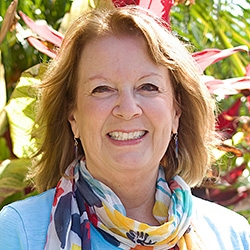
NVC Resources on Connection
-
Listen as Miki works with participants. Topics: how small requests serve interdependence; NVC process vs purpose; how to respond when empathy is used to create distance; coping with verbal aggression, and more!
-
In a recent vacation in a Mexican village, I was surprised to find myself in the midst of a community in mourning. Two days before I came, a 21-year-old girl had died in a car accident. Everyone in the town knew her and was openly affected by her death.
-
CNVC Certified Trainer Arnina Kashtan talks about what she calls "witnessing humanity," touching on the gift of presence, empathy vs. identification and staying present in the face of intensity.
-
Bridget Belgrave, CNVC Certified Trainer from the United Kingdom, talks with an interviewer after he attends an NVC and Dance Floors workshop with her. The interviewer shares his reaction to the term "Nonviolent Communication."
-
In this introduction to Nonviolent Communication (NVC), Wes Taylor discusses the two basic aspects of NVC, the consciousness and the tools that help manifest the consciousness.
-
There are four components to the Nonviolent Communication (NVC) model, as developed by Marshall Rosenberg, PhD. The 4-Part NVC Process can guide you to express how you are, or they can be used to empathically receive how another is.
-
Listen to this captivating story by Leo Sofer. A strong blacksmith comes to the aid of a little girl when she needs protecting. But can he protect her from the harsh words she speaks to herself inside her head?
-
Join CNVC Certified Trainers Jim and Jori Manske for this session that will help you minimize your reactivity and live in greater choice.
-
In October 2016, CNVC Certified Trainer Gitta Zimmerman held her 5th international workshop for people working with street children in Ruhpolding, Germany. This time most of the participants were already experienced, and we were merging more and more into a family. The workshop focus was on “mediation” and “entrepreneurship.
-
Trainer Tip: It is true that we cannot fully understand other people until we understand ourselves. Gain understanding and healing through self-empathy within the Compassionate Communication process.











